HOME >> CHINA
Falcon families
Source:Global Times Published: 2015-11-25 18:38:01
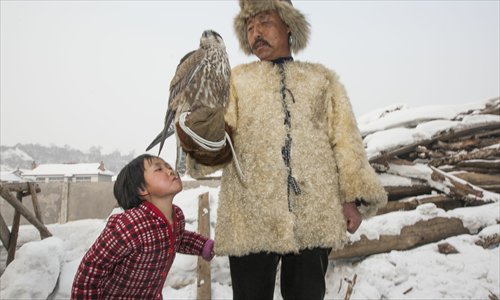
A child looks at a trainer holding a falcon in the village of Yingtun in Jilin Province. Photo: IC
Hidden in the forests of Changbai Mountain in Jilin Province, people and birds of prey live together in a place called Yingtun, or "falcon village." Almost all of the 300 or so households in the village keep and train falcons, keeping alive a tradition that stretches back more than 300 years and was started by their Manchu ancestors.
The Manchu people, an ethnic group that mostly live in Northeast China, traditionally hunt and fish for their food, and domesticate the large birds for hunting.
Once a form of leisure and entertainment for the Manchu Qing Dynasty (1636-1912), raising falcons is still considered a show of bravery and manhood by their modern descendents. These days local villagers still hunt in the winter to add a little fresh meat to their pots.
The "falcon king" Liu Hongsheng started training the birds when he was 9 years old and has nearly 40 years of experience.
During each year's seventh and eighth lunar months, the men in the village enter the mountains to catch falcons for domestication.
In order to tame a newly captured falcon, a falcon master must stay with it in isolation and maintain hours of eye contact with it for several days. The bird will eventually tire and be tamed. Once the relationship is established, it's unbreakable. The falcons then learn to bring prey to the master.
One falcon can catch up to 20 pheasants every day, which can be sold for about 150 yuan ($23) each.
Global Times
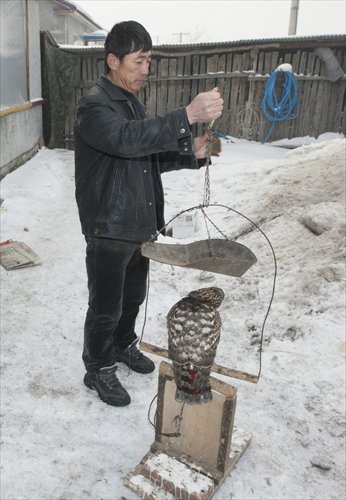
Falconer Liu Hongsheng weighs a bird. Photo: IC
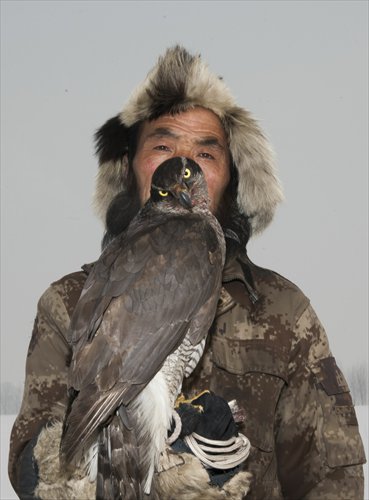
A falconer holds his falcon. Photo: IC
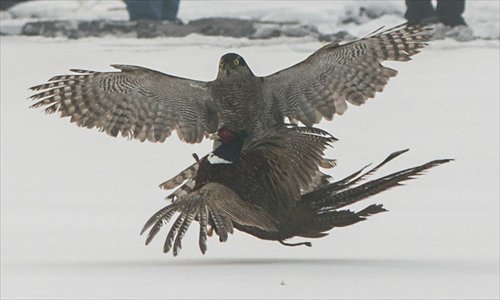
A falcon seizes a pheasant. Photo: IC
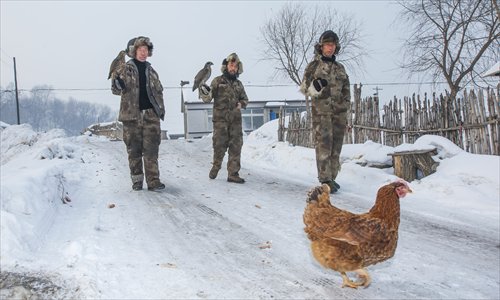
Falconers hold their falcons in the village. Photo: IC
Posted in: In-Depth